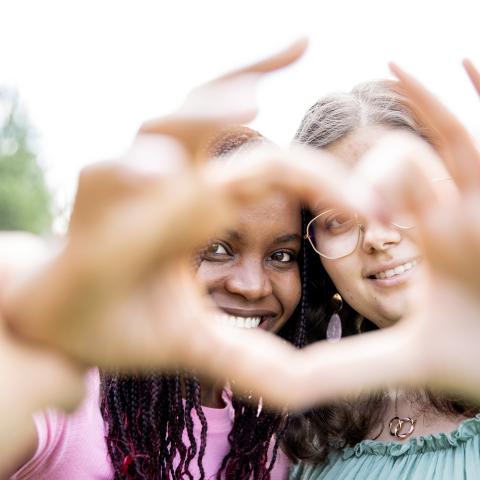
Living sustainability
Sustainability - the foundation of our educational work
Empathy, compassion and an understanding of ourselves as part of the (surrounding) world are the driving force behind everything we do. We call this the "heart level". And we are convinced that only those who understand themselves as part of the big picture and of nature can act holistically and sustainably.
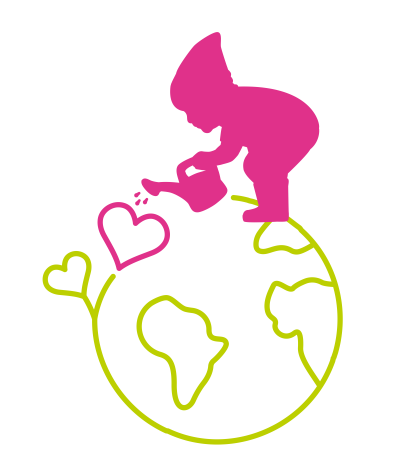
In all Babilou Family Germany daycare centers, we implement Sustainable Education - a concept that enables children to experience ecological, social and economic relationships in a child-friendly way and to develop a responsible understanding of the world.
Details on Sustainable Education
For us, sustainability is the basis of all educational activities. That is why the Wichtel Akademie defined this topic as an educational standard back in 2016 and has been continuously developing it ever since. We are delighted that the "Sustainable Education" concept is accompanying the Wichtel Akademie on this journey. We understand sustainability as a humanitarian and holistic attitude towards all living beings and our (environmental) environment. We want to convey this to all children in our daycare centers from an early age.
From an inner attitude to sustainable action
"A deep inner attitude leads to holistic understanding - holistic understanding leads to authentic, external action."
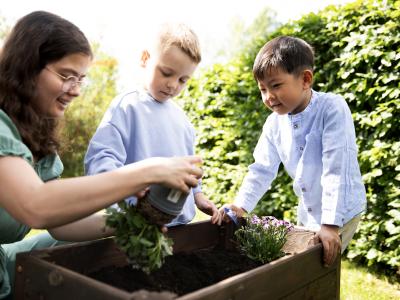
In our society, the topic of "sustainability" is predominantly related to material things. Waste separation, recycling projects or a largely packaging-free lifestyle are seen as the only sustainable way to act. This often leads to frustration, low acceptance and only temporary changes in behavior - especially when it is imposed on us from the outside. We call this acting on a "material level". Of course, this material level is important - it is the practical implementation of a sustainable mindset. But we want to know: What actually happens to us before implementation? What motivates us to act sustainably? What is the story behind our actions? And what role does this play in our nurseries and kindergartens? We want to become aware of why we are passionate about something and act accordingly. That's why we keep asking ourselves the question: What is the long-term impact of our daily actions on society? What can we do today in our day-to-day daycare activities to teach the children entrusted to us empathy, compassion and an understanding of ourselves as part of our (surrounding) world?
"Sustainable education is based on a competence-oriented understanding of education and is characterized by permanence and connectivity, transfer of what has been learned, learning strategies as well as interest, motivation and perseverance."
(Bavarian guidelines for the education and upbringing of children up to the end of primary school)
What steps are important for us in the future?
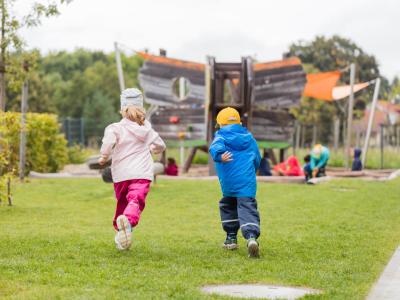
- We want to create awareness in our crèches and kindergartens! To focus on our inner selves, to allow creative ideas and processes to emerge, to be courageous and to experience and live all of this with joy and without pressure in everyday daycare.
- It is important to us that we set ourselves goals for the future. But we are also aware that once we have achieved our goals, we will move on. In our everyday pedagogical work, we always focus on the development process, combined with the joy of learning and doing. In this way, we shape the process as a learning experience that has a lasting and holistic impact on our children's actions and our own.
On the way to a sustainable daycare center - three dimensions of sustainability
The topic of sustainability encompasses three dimensions: Social, ecological and economic. Based on this, we have defined three areas that we are committed to implementing in our day-to-day educational activities at all locations.

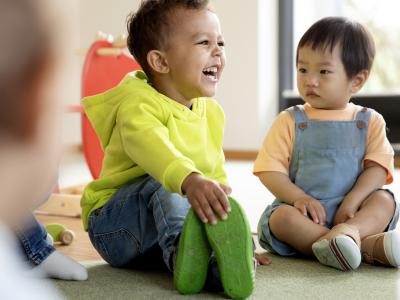
The socio-cultural dimension
The focus here is on people and society: the aim is to live together in a communal, compassionate and tolerant way. Everyone should be given the opportunity to develop freely according to their individual personality.
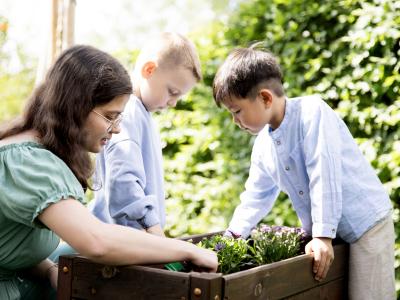
The ecological dimension
In order to bring the children closer to the connection between humans and nature, our educational staff accompany them on a variety of nature experiences. This allows the children to experience our ecosystem and the local flora and fauna with all their senses.
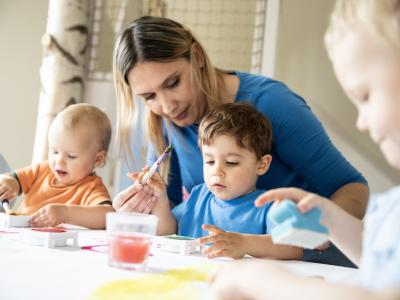
The economic dimension
Our internal ambassadors for sustainability
Talking about sustainability is one thing. Implementing the associated thinking and actions in our daycare center teams and in our daily educational work is another. Our trainers for pedagogical standards and our multipliers for sustainability play an important role in this - they are our internal ambassadors for sustainability. Together with them, we continuously develop our teams and our work.
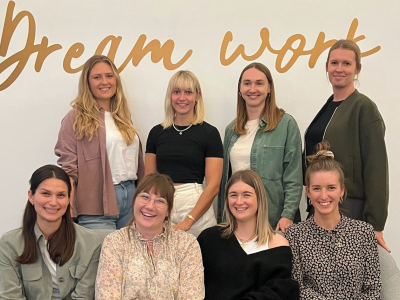
The trainers for pedagogical standards
Our trainers for pedagogical standards were actively involved in anchoring the topic of sustainability in our pedagogy. During training sessions, they convey our pedagogical approach and the associated sustainable actions to our daycare center teams, who then spread the message at all levels at our locations.
Our trainers for pedagogical standards are our "heartbearers" and support our specialists in confidently and courageously breaking new ground and shedding light on our pedagogical standards from new perspectives.
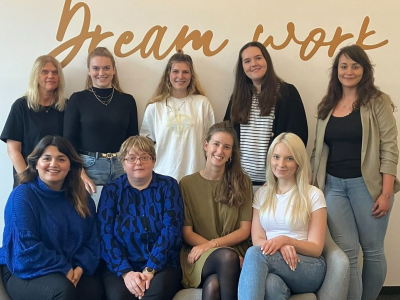
The multipliers for sustainability
Our sustainabilitymultipliers meet in regular workshops. The content of these workshops is based on the current status of our path and is supported by our sustainability trainers. The sustainability multipliers are our catalysts: They receive new food for thought and inspiration, which they take back to their locations and pass on to their teams.